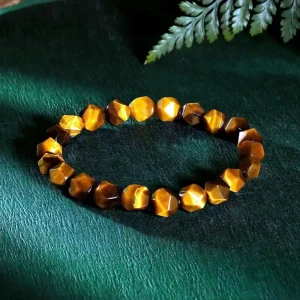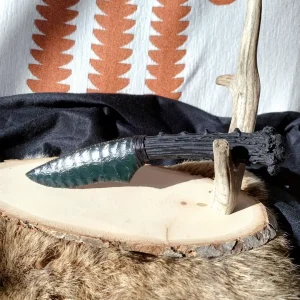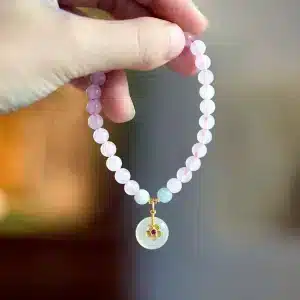How Westerners Understand Chinese Zodiac Culture: Myths, Meanings, and Fascination
- Last updated December 28, 2024
- Written by Serestone
The Chinese zodiac is one of the oldest and most revered systems of astrology in the world, with deep roots in Chinese culture and tradition. It is a fascinating system based on a twelve-year cycle, where each year is represented by an animal and its associated characteristics. While it is widely known in East Asia, the Chinese zodiac has also piqued the curiosity of many people in the West. Over the years, Westerners have become increasingly fascinated by the symbolism and significance of the zodiac, even integrating it into their own lives in unique ways.
In this article, we will explore how Westerners understand the Chinese zodiac, dispelling some common myths, uncovering the deeper meanings of the animals, and highlighting a fascinating story of an unexpected Western connection to the Chinese zodiac: Nicolas Cage and his fascination with the Year of the Dragon.

The Basics of the Chinese Zodiac
At the heart of Chinese zodiac culture is the belief that the animal associated with the year in which you were born can shape your personality, relationships, and even your fate. The Chinese zodiac includes twelve animals:
- Rat
- Ox
- Tiger
- Rabbit
- Dragon
- Snake
- Horse
- Goat
- Monkey
- Rooster
- Dog
- Pig
Each animal is also associated with one of the five elements—wood, fire, earth, metal, and water—and has particular traits that influence those born in that year. For example, the Dragon is often seen as a symbol of power, intelligence, and leadership, while the Rabbit is associated with peace, compassion, and sensitivity.
In Chinese culture, the zodiac is a crucial aspect of daily life, influencing everything from marriage and career choices to the celebration of the Lunar New Year. For Westerners, however, the Chinese zodiac is often viewed more as an exotic and mystical curiosity, rather than a guiding philosophy.For more information,refer to The Twelve Chinese Zodiac Signs: Meanings, Traits, and How They Influence Your Destiny.
Myths and Misunderstandings in the West
One of the most common misunderstandings about the Chinese zodiac in the West is that it works in the same way as Western astrology. In Western astrology, a person’s zodiac sign is determined by the position of the stars and planets at the time of their birth. However, in Chinese astrology, the year of birth is the primary determining factor, and the cycle of the zodiac follows the lunar calendar rather than the solar calendar.
Another myth is that the zodiac signs follow a strict order of good or bad luck. In reality, each animal has both positive and negative traits, and the Chinese zodiac emphasizes balance and harmony rather than fixed destinies.
Westerners also sometimes romanticize the zodiac animals, often simplifying or misunderstanding the deeper cultural meanings. For example, the Dragon is often viewed as a fierce and powerful creature in the West, but in Chinese culture, it represents a more complex mix of strength, wisdom, and nobility.
Nicolas Cage and the Chinese Zodiac: A Fascinating Western Connection
One of the most intriguing stories of a Westerner’s connection to the Chinese zodiac comes from Hollywood actor Nicolas Cage. Known for his eclectic choices in both his career and personal life, Cage has long been fascinated by Chinese culture, and in particular, the symbolism of the Chinese zodiac.
Cage, who was born in 1964—the Year of the Dragon—discovered his own zodiac sign while researching Chinese astrology. The fact that he was born under the sign of the Dragon filled him with a sense of pride and excitement. In Chinese culture, the Dragon is revered as a symbol of strength, courage, and power. Dragons are often associated with leadership, charisma, and good fortune—traits that Cage likely saw as a reflection of his own bold and adventurous spirit.
In a story that blends his love for unique cultural symbols and his tendency to make bold personal statements, Cage took his admiration for his zodiac sign a step further by getting a tattoo of a dragon on his body. However, in true Cage fashion, he didn’t stop there. He also had a fire stove tattooed next to the dragon, perhaps as a symbol of power, transformation, or personal warmth. This tattoo combination is a representation of his understanding and admiration for the symbolism behind the Chinese zodiac, along with his own identity.
Cage’s story is a fascinating example of how the Chinese zodiac can resonate with people outside of China, especially when they discover personal connections to the traits of their zodiac animal. His tattoo also demonstrates the way Westerners have adopted and adapted Chinese symbols, making them part of their own personal narrative.

Western Fascination with the Chinese Zodiac
Nicolas Cage’s story isn’t an isolated case. In recent years, there has been a growing interest among Westerners in the Chinese zodiac, particularly as they seek deeper meanings and connections to different cultures. The idea that a person’s birth year can influence their personality and destiny has drawn many to explore Chinese astrology for insights into their own lives.
In fact, celebrities and influencers across the world have embraced elements of Chinese culture, including the zodiac, as a way to connect with the spiritual and symbolic aspects of life. Some even use it as a form of self-reflection or a tool for understanding relationships. For example, knowing that you are born in the Year of the Snake might make you more aware of the personality traits associated with that animal—such as intuition and wisdom—and how they play out in your life.
The growing interest in Chinese New Year celebrations in the West also speaks to the increasing appreciation for Chinese traditions, including the zodiac. Many Western cities now host large-scale Lunar New Year celebrations, with dragon dances, fireworks, and cultural performances, as a way of honoring this rich tradition.
The Future of the Chinese Zodiac in the West
As more Westerners delve into the world of Chinese zodiac, there’s potential for even deeper integration of this ancient system into Western culture. With its emphasis on cycles, balance, and personal growth, the Chinese zodiac offers valuable insights that many people in the West are eager to explore. It provides a unique lens through which individuals can understand themselves and their relationships, while also broadening their cultural horizons.
Just as Nicolas Cage’s fascination with the Dragon sign symbolizes his own adventurous spirit and personal connection to Chinese culture, others in the West are also finding ways to incorporate these symbols into their lives—whether through tattoos, jewelry, or simply exploring the spiritual meanings behind each animal sign.
Conclusion
The Chinese zodiac is a rich and complex system that offers more than just a fun way to learn about your personality. For Westerners, it represents a window into an ancient tradition that values harmony, balance, and the connection between the heavens and the earth. While there are some misconceptions and myths surrounding it, the growing fascination with the zodiac shows that it has a universal appeal that transcends cultural boundaries.
Whether you’re a Westerner like Nicolas Cage discovering your zodiac sign for the first time or simply someone curious about the deeper meanings behind the animals, the Chinese zodiac offers valuable insights into life, destiny, and self-awareness. As more people around the world explore its rich symbolism, the Chinese zodiac continues to weave its way into global consciousness—bridging cultures and enriching the lives of those who choose to embrace its wisdom.
Explore your zodiac, discover your inner strength, and let the Chinese zodiac guide you on your journey through life!
Related products












